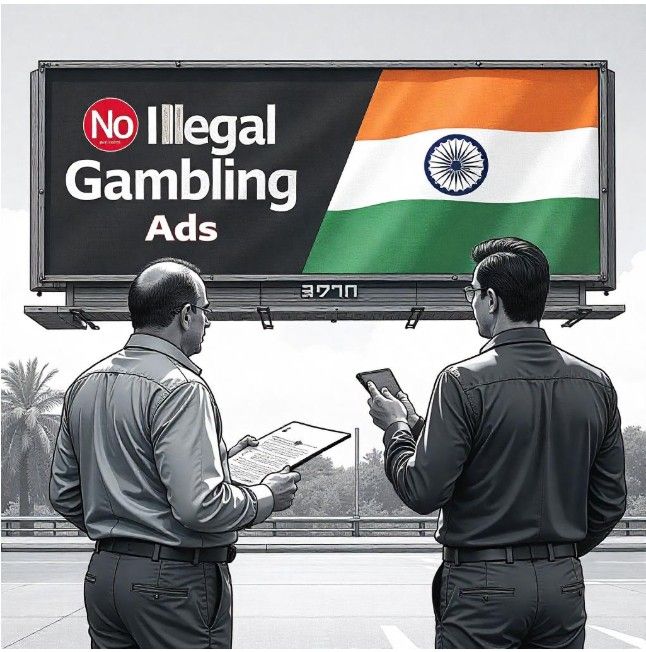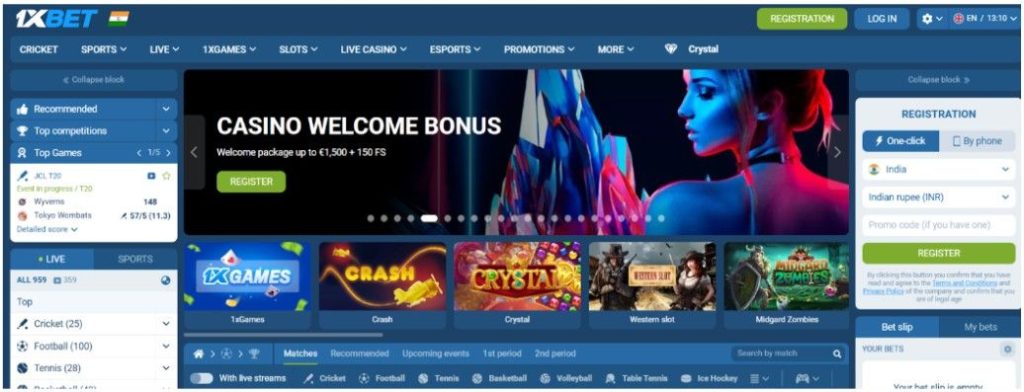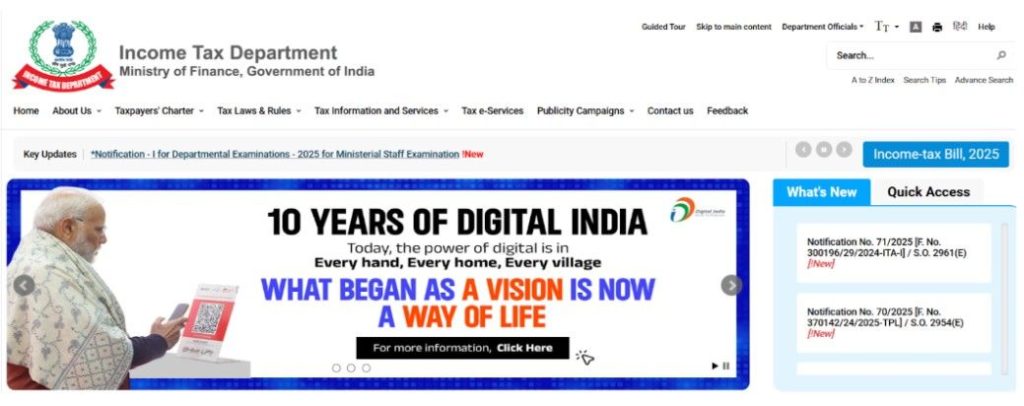India’s passion for cricket, kabaddi, and sports runs deep—but is betting on them legal? The answer isn’t straightforward.
Betting laws in India vary by state. Each state sets its own rules, which adds to the confusion.
Betting is very popular in the country, but the laws about gambling are complicated and sometimes confusing.
Different states have different rules, and online betting operates in an unclear legal framework
This guide breaks down the current status of betting legality in India. what’s permitted, what’s prohibited, and where the grey areas exist.
Key Highlights of Betting in India
To understand India’s gambling environment, you need to look at national laws and state rules.
- Most betting is illegal under the 1867 Public Gambling Act, but exceptions exist for horse racing and state lotteries.
- Online betting operates in a legal grey area with no clear federal regulation.
- Fantasy sports like Dream11 are legal in most states as “games of skill”.
- State laws vary significantly, with Goa, Sikkim, and Nagaland having more permissive gambling laws.
- International betting platforms accept Indian users, but they also involve legal risks.
Is Betting Legal in India?
Betting in India is largely prohibited under the Public Gambling Act of 1867, which criminalises operating or visiting gambling houses.

However, there are notable exceptions; horse racing and government-run state lotteries are considered games of skill and are thus legally permitted.
Meanwhile, online betting occupies a legal grey zone, as no specific federal law clearly defines its legality, leaving room for interpretation.
What Do Indian Laws Say About Gambling?
The Ministry of Consumer Affairs, Food & Public Distribution has issued advisories against illegal gambling advertising, highlighting ongoing concerns about unregulated betting platforms.
The Public Gambling Act (1867) prohibits operating or visiting gambling houses, but it is outdated and doesn’t address online betting.

Some Indian states, such as Nagaland, Goa, and Sikkim, have enacted new laws. These laws control both physical and online gambling.
These laws often permit licensed casinos and online platforms under strict conditions.
The main legal difference is whether an activity is a “game of skill” or a “game of chance.” Games of skill are usually allowed, but games of chance are often banned in many states due to gambling laws.
India Betting Laws by State (2025 Update)
Gambling laws in India vary widely by state. This creates a confusing mix of regulations among users.
| State | Legal Forms of Betting | Notes |
|---|---|---|
| Goa | Casinos, lotteries | Legal in licensed venues |
| Sikkim | Online betting, lotteries | Government-regulated |
| Maharashtra | Lottery only | Online betting is not legal |
| Tamil Nadu | Lottery (state-run) | Online gaming is often restricted |
| Assam, AP, Odisha | Most online games are banned | Includes fantasy sports bans |
| Nagaland | Games of skill under license | Includes online games |
| Delhi | Lottery only | No legal sports betting |
The table reveals significant regional differences in gambling laws. Progressive states like Goa and Sikkim have embraced regulated gambling, while conservative states maintain strict prohibitions.
Most states permit only government-run lotteries, leaving sports betting largely illegal across the country.
Are Online Gambling and Betting Sites Legal in India?
Many international betting platforms like Betway and 1xBet accept Indian users despite the legal uncertainty.
These websites operate from offshore jurisdictions, allowing users to deposit and withdraw funds in Indian Rupees or foreign currencies.

While they argue compliance due to the lack of clear Indian regulations, users still risk breaching local state laws and financial regulations, such as FEMA provisions.
Taxation on Gambling and Betting in India
Gambling and betting winnings in India are subject to multiple layers of taxation, including income tax, equalisation levy, and GST, depending on the nature and source of the transaction.
Income Tax
Winnings from gambling and betting are taxable at 30% under Section 115BB of the Income Tax Act.

This applies to all forms of gambling, including lotteries, casinos, and online betting. TDS is deducted at source on winnings exceeding ₹10,000.
Equalisation Levy
A 2% equalisation levy applies to payments made to non-resident e-commerce operators, including international betting platforms.
This tax targets digital transactions with foreign gambling sites accepting Indian customers.
The levy ensures overseas platforms contribute to India’s tax system, even if they lack a physical presence in the country.
GST
A 28% Goods and Services Tax (GST) is applied to all gambling activities in India, including casinos, betting, and online gaming platforms offering real-money services.

This high tax rate applies to licensed casinos, government-run state lotteries, and regulated online gaming platforms that operate domestically under legal frameworks. It contributes to the government’s indirect tax revenue collection.
What Are Games of Skill vs. Chance?
In India, games of skill, such as chess, rummy, and fantasy sports, are generally considered legal. In contrast, games of chance, including roulette, slot machines, and traditional casino games, are largely banned under gambling laws.

Indian courts have ruled that certain games, such as Dream11, rummy, and horse racing, require more skill than luck.
As a result, these activities are legally classified as games of skill, not gambling. This classification grants them legal protection in many Indian states.
It lets these platforms and events operate under regulated rules. This includes stricter limits on games of chance.
Most Popular Betting Games/Sports in India
While betting laws in India are strict, several popular games continue to attract players through both legal and unofficial channels.
- Cricket Betting: Despite being illegal, cricket remains the most popular betting sport, especially during IPL seasons and international matches.
- Fantasy Sports: Dream11, MPL, and similar platforms have gained massive popularity as legally recognised skill-based games.
- Horse Racing: The only form of sports betting legal across India, with tracks in Mumbai, Bangalore, and Kolkata.
- Kabaddi and Football: Growing betting interest in Pro Kabaddi League and ISL, though mostly through underground channels.
- Casino Games: Roulette, blackjack, and poker are popular in legal casinos in Goa and Sikkim.
Types of Betting and Their Legal Status
Betting in India falls into distinct categories, each governed by different legal interpretations depending on the platform, game type, and state regulations.
1. Sports Betting
Sports betting is illegal in most Indian states, with the notable exception of horse racing, which is legally regulated as a game of skill.
Cricket betting, although immensely popular, remains unregulated and is not legally permitted.

It keeps growing through underground bookmakers and unlicensed online sites. This growth brings with it both legal and financial risks.
2. Online Betting
Online betting in India exists in a grey area, as there’s no clear national law to govern it. Some states, like Sikkim and Nagaland, have stepped in with their licenses for specific online games.
At the same time, global platforms like Bet365 continue to attract Indian users by operating from abroad and taking advantage of legal loopholes, even as regulations remain questionable.
3. Fantasy Sports
Fantasy sports are seen as games of skill in India. The Supreme Court confirmed this in a 2021 ruling.
This decision allows platforms like Dream11 to operate legally in most states. As a result, user confidence has grown.
More people are now joining fantasy leagues for cricket, football, and kabaddi. Some states still restrict or ban fantasy gaming platforms.
If you play often, it’s key to know how to recharge your Dream11 wallet. This keeps your account ready for the next match.

This legal status allows them to operate lawfully in many states. However, they remain banned in Assam, Andhra Pradesh, Odisha, and a few other regions due to differing state-level gambling and gaming regulations.
4. Casino Gambling
Casino gambling is legal only in Goa, Sikkim, and Daman, where licensed operators run physical or offshore casinos under strict state regulations. In most other Indian states, casino gambling remains illegal.

Individuals found operating or participating in unlicensed casinos may face legal action, including fines and imprisonment under state-specific gambling laws.
Additionally, check out casinos that allow withdrawals from UPI before you start playing online or offline. This ensures a safe transaction from the casino site to your bank.
5. Lotteries
Lotteries are a legal form of gambling in several Indian states. These state-run lotteries generate significant revenue and are closely monitored to prevent fraud.
Online sales are also allowed in regulated regions. Kerala and Maharashtra are popular for their strong lottery systems.
They hold daily draws and offer big prizes. Each state has a department that oversees the operations. This setup helps ensure transparency and builds public trust.
Risks of Betting in India
Engaging in betting activities in India involves significant risks, including legal consequences, financial restrictions, and potential exposure to fraud or scams.
Legal Penalties
Fines ranging from ₹200 to ₹1,000 or imprisonment of up to three months for participating in illegal betting rings under the Public Gambling Act.
Payment Gateway Restrictions
UPI, net banking, and card payments are often blocked on offshore betting sites. Banks may freeze accounts for suspicious gambling-related transactions.
To understand how UPI works for gambling payments, check out UPI Apps for Betting in India.
Fraud/Scams
No consumer protection if platforms are fraudulent. Many unregulated sites disappear with user deposits, leaving no legal recourse for victims.
Addiction
The lack of regulation makes responsible gaming harder to enforce. No mandatory cooling-off periods or loss limits on most platforms.
Tips for Responsible and Safe Betting in India
Stay informed and cautious with these essential tips to ensure your betting experience in India remains safe and legal.
- Bet only on legal platforms like licensed horse racing or state lotteries.
- Avoid unregulated apps with no license or user reviews.
- Use payment methods cautiously and avoid cryptocurrency transactions.
- Set strict budgets and never bet more than you can afford to lose.
- Always check your state’s specific laws before engaging in any betting activity.
- Seek help if betting becomes compulsive or affects your financial well-being.
Conclusion: Betting Legality In India Varies By State Rules
Betting laws in India are complex. They differ greatly by state and the type of game. The legal framework creates confusion for users wanting to engage in betting activities.
Online betting is common, but it operates in a legal grey area. It’s not fully legal or illegal, which creates risks for users who aren’t informed.
Some activities, like fantasy sports and horse racing, have legal protection. This is due to “skill-based” exceptions.
Research your local laws and place bets with caution. When in doubt, consult legal experts or avoid betting altogether to stay on the right side of the law.
FAQ
Not officially. Some states allow it under specific licenses, but most don’t regulate it, making it a legal grey area with potential risks.
In most states, Dream11 is legal. It’s considered a game of skill by courts but is banned in Assam, Andhra Pradesh, Odisha, and a few other states.
If your state has strict gambling laws, you could face penalties, including fines or imprisonment, for illegal betting activities.
They operate from abroad and are not regulated by Indian law. Using them involves legal and financial risks despite their acceptance by Indian users.
Horse racing, state-run lotteries, and licensed casinos in Goa and Sikkim are the main legal betting options available to Indian residents.
- How to Withdraw Winnings from Betting Sites Using UPI - August 20, 2025
- Is Online Gaming Addictive? (Risks & Precautions) - August 19, 2025
- Google Pay for Betting in India – How To Use It? - August 18, 2025